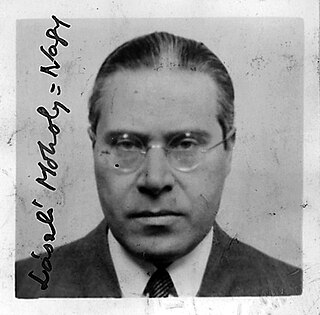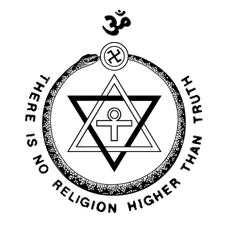Walter Clemow Lanyon (October 27, 1887 - July 4, 1967) was the author of more than 40 books on New Thought spirituality.
Walter Clemow Lanyon (October 27, 1887 - July 4, 1967) was the author of more than 40 books on New Thought spirituality.
Little is known about Lanyon's personal life except that he was an Englishman of Cornish stock born in the United States in 1887. He was educated in the US, France, and England, and served as interpreter and foreign correspondent. For decades he traveled all over the world, investigating and studying the various presentations of Christian teachings. He traveled and lectured all over the world. His lectures were based, he said, "solely on the revelation of Jesus Christ."
In addition to his books, Lanyon was credited with having written two light operas as well as several secular stories, plays and articles, all of which are now lost. This is also true of paintings he is said to have exhibited in Europe and the USA.
Lanyon knew and communicated with Father Divine as documented in a letter between them. [1]
He knew and wrote a book called 'Abd Allah, Teacher, Healer in 1921, about Abdullah the mystic Ethiopian teacher who influenced many notable New Thought authors and educators.
Lanyon died in California on July 4, 1967 at the age of 79.

László Moholy-Nagy was a Hungarian painter and photographer as well as a professor in the Bauhaus school. He was highly influenced by constructivism and a strong advocate of the integration of technology and industry into the arts. The art critic Peter Schjeldahl called him "relentlessly experimental" because of his pioneering work in painting, drawing, photography, collage, sculpture, film, theater, and writing.
At the end of each Major League Baseball season, the league leaders of various statistical categories are announced. Leading either the American League or the National League in a particular category is referred to as a title.
Maurice Baring was an English man of letters, known as a dramatist, poet, novelist, translator and essayist, and also as a travel writer and war correspondent, with particular knowledge of Russia. During World War I, Baring served in the Intelligence Corps and Royal Air Force.

John Walter Lord Jr. was an American author, lawyer, copywriter and popular historian best known for his 1955 account of the sinking of the RMS Titanic, A Night to Remember.

Jules Furthman was an American magazine and newspaper writer before working as a screenwriter. Pauline Kael once wrote that Furthman "has written about half of the most entertaining movies to come out of Hollywood "

David Butler was an American actor, film director, film producer, screenwriter, and television director.

Eschatology is a New Thought movement founded by American writer and former practitioner William W. Walter. Walter was formally a member of the Catholic Church and then The First Church of Christ, Scientist until 1912 when he rejected organized religion in order to found his own metaphysical system. Although it is generally classified as a new religious movement, Walter did not see it as a religious movement, and his followers reject the association with religion. He originally named his organization "The Walter Method of Christian Science"; and the term Eschatology as a trademark for Walter's teaching was not used until the 1920s.

Geoffrey Hodson was an occultist, Theosophist, Co-Freemason, mystic, Liberal Catholic priest, philosopher and esotericist, and a leading light for over 70 years in the Theosophical Society.

Waldo David Frank was an American novelist, historian, political activist, and literary critic, who wrote extensively for The New Yorker and The New Republic during the 1920s and 1930s. Frank is best known for his studies of Spanish and Latin American literature and culture and his work is regarded as an intellectual bridge between the two continents.
Maurice Elvey was one of the most prolific film directors in British history. He directed nearly 200 films between 1913 and 1957. During the silent film era he directed as many as twenty films per year. He also produced more than fifty films – his own as well as films directed by others.

Holmes Herbert was an English character actor who appeared in Hollywood films from 1915 to 1952, often as a British gentleman.
The Southern Africa Association for the Advancement of Science (S2A3 or S2A3) is a learned society, originally known as the South African Association for the Advancement of Science (SAAAS). Established in 1902, its principal aim is to increase the public awareness and understanding of science, engineering and technology, and their role in society, by means of various awards and by communicating the nature, processes, ethics, and excitement of science. Membership is open to all.

Gyula Germanus, alias Julius Abdulkerim Germanus, was a professor of oriental studies, a Hungarian writer and Islamologist, member of the Hungarian Parliament and member of multiple Arabic academies of science, who made significant contributions to the study of the Arabic language, history of language and cultural history. He was a follower of the famous orientalist, Sir Ármin Vámbéry and became a scholar of world repute.

Max Neufeld was an Austrian film director, actor and screenwriter. He directed 70 films between 1919 and 1957. He directed the 1934 film The Song of the Sun, which starred Vittorio De Sica.
Fenwicke Lindsay Holmes (1883–1973) was an American author, former Congregational minister, and Religious Science leader. The brother of Ernest Holmes, Fenwicke is widely recognized for being an important factor in the establishment of Religious Science and the founding of the United Centers for Spiritual Living. Fenwicke is recognized as an important figure in the development of the New Thought movement in Japan in particular Seicho-no-Ie.
Reverend Martin Jerome Scott, S.J., Litt. D. (1865–1954) was an American priest of the Society of Jesus of the Roman Catholic Church and author of a number of books, pamphlets, and articles.